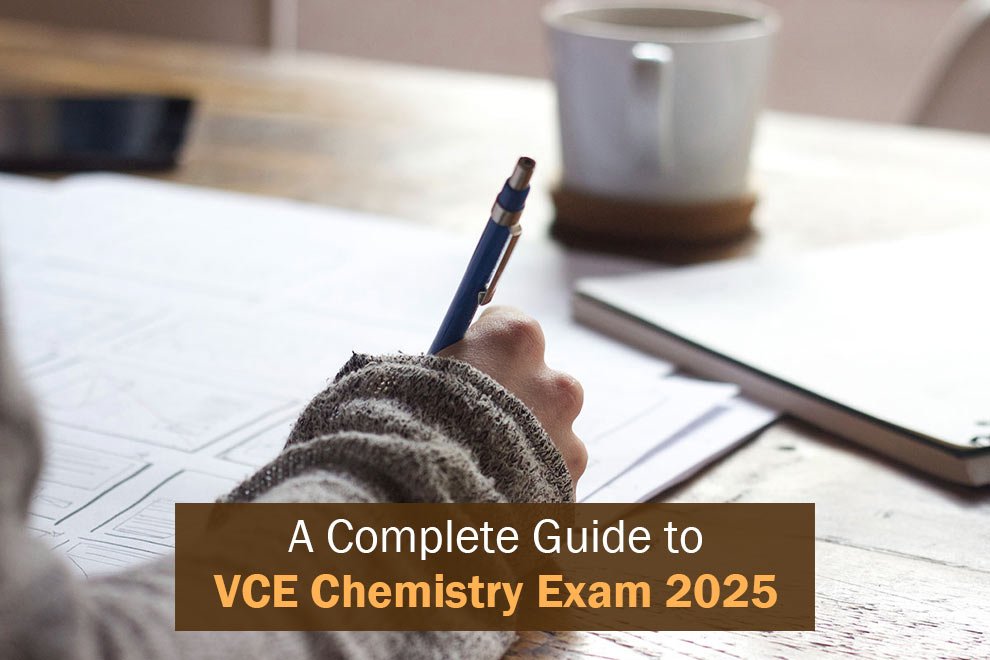Violet, a second-year medical student at Monash University, shares expert tips and strategies for mastering the VCE Chemistry exam. Graduating with a raw score of 47, Violet now provides valuable insights—similar to what you’d get from a top-tier VCE chemistry tutor—to help students succeed.
Hi, I’m Violet, and I know firsthand how challenging the VCE Chemistry exam can be. In this blog, I’ll introduce the exam structure, common question types, and practical strategies—insights you’d typically receive from an experienced VCE chemistry tutor Melbourne. Whether you’re just starting or deep in revision, I hope these tips make your chemistry journey smoother.
Section A – Multiple Choice Questions
The first 30 marks of the 120-mark exam come from multiple choice questions. These cover almost every area of study, so comprehensive preparation is key. If you’re working with a VCE chemistry tutor, they’ll likely emphasize efficient timing—1 to 1.5 minutes per question.
If you’re unsure about a question, use the process of elimination, a strategy often taught by any good VCE chemistry tutor Melbourne. And if you’re still stuck, skip and return later—don’t lose time chasing one point.
Annotating your booklet (when allowed) and making notes beside questions can help organize your thoughts and make review easier. Many VCE chemistry tutors recommend practicing these techniques well before exam day.
Section B – Short Answer Questions
This section accounts for 90 marks and typically includes 9 to 10 questions. Some question types include:
Calculations
Expect calculations involving stoichiometry, thermochemistry, and electrochemistry. An experienced VCE chemistry tutor Melbourne will drill you in formula recall and unit conversion. Pay attention to significant figures—many students lose marks here unnecessarily. Don’t skip steps: even if the final answer is wrong, clear working may still earn partial marks.
Scientific Investigation
This question type tests your understanding of experiment design and evaluation. Practice identifying variables, constructing hypotheses, and analyzing data. A skilled VCE chemistry tutor will walk you through past investigation questions and refine your critical thinking.
Understanding terms like systematic vs. random error, or the difference between reliability and validity, is essential. Use structured response formats such as “If… then…” for writing hypotheses—something your VCE chemistry tutor Melbourne will likely reinforce.
Extended Response
This high-mark question often relates to big themes like fuels and energy or analytical chemistry. Structure is critical. Stick to the dot points given and cover each thoroughly. VCE chemistry tutors always stress planning before writing—map your points before jumping in.
General Tips for Section B
Plan your responses. Think clearly and follow the mark distribution. A well-organized answer shows depth and helps markers follow your logic.
Don’t panic if stuck. Re-read the question. Still no clue? Move on and return later.
Use your highlighter. Emphasize command words, required units, and mark allocations. This is something most VCE chemistry tutor Melbourne classes strongly recommend for maintaining focus during long exams.
Using Reading Time Wisely
With 15 minutes of reading time, how you use it matters. Here’s what I suggest (and what many VCE chemistry tutors teach):
Skim through Section B to get a feel for question types.
Read the extended response question and start brainstorming ideas.
Preview Section A and mentally note answers—but remember, no markings are allowed during reading time, so be extra cautious.
Practicing with this approach beforehand will help you find your personal rhythm. Every experienced VCE chemistry tutor Melbourne will tell you: exam strategies are personal, and trial-and-error in mock papers is the best way to refine them.
Familiarising Yourself with the Data Book
The data book is your friend. It holds essential information—constants, chemical structures, and formulas. But flipping through it takes time unless you already know where things are. Any VCE chemistry tutor will advise you to rehearse with the data book during practice sessions so that you can quickly find key figures in the real exam.
Even though it’s provided, memorising common values—like molar masses of H, C, O, N—can shave precious seconds off your working time. This is one of those small things that top students and VCE chemistry tutors Melbourne always recommend.
Also read: The Role of Clerk Question Papers in Building Exam Strategy










